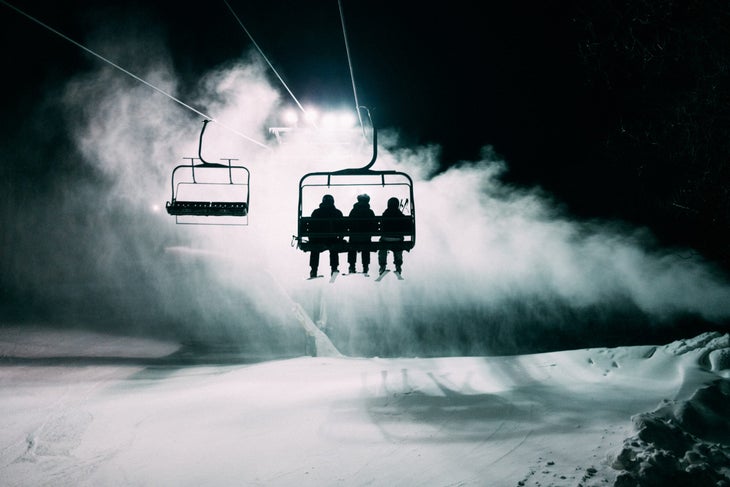We get it: It’s hard to hear bad news about how global warming is affecting the sport we love, especially when Mammoth stayed open into August and Alta broke historic snow total records just last season. Yet we still have to heed to what science is telling us, which is that U.S. winters are indeed getting shorter and shorter.

A new report detailing climate change’s effect on the ski industry takes a look at both the past and future. , which was published in the trade publication Current Issues in Tourism, examines global warming’s effect on different aspects of the ski industry, including season length, average winter temperatures in different U.S. regions, and projected economic losses if climate issues go unchecked.
One of the most unique aspects of the report is that it presents an alternate reality of what our ski seasons would have looked like over the last 20 years without any climate-change impacts. Using data from ski resorts gathered between 1960-1979, before the effects of global warming started to impact our winters, the researchers concluded that our ski seasons would have been extended by 5.5 to 7.1 days. Those days equaled around $252 million in lost revenue.
Using similar extrapolated data, the researchers also projected how our future ski seasons will be impacted by global warming. Instead of only gloom and doom, however, they offer a glimpse of what it might look like if we successfully lower our fossil fuel emissions—as well as if we don’t.
Also Read: 5 Reasons I’m Convinced We Can Stop Climate Change
We’ll give you the bad news first. If we continue on our current trajectory, our seasons risk losing up to 60 days in the high-emissions scenario. That’s two months. And if we do manage to reduce our carbon emissions, we’ll only lose an estimated 14 to 33 days. Those estimates take into account not only reduced snowfall, but also higher temperatures that will make it more difficult or impossible to make snow.
It’s not a great scenario, but it’s also not surprising given the way global warming has left its mark in every corner of the globe. Yet despite evidence of climate change touching our everyday lives, we can’t seem to move the needle.
That’s why the study’s authors targeted skiing. “[People] may not care about the loss of the species halfway around the world, or a flood that’s happening in some other part of the world,” said scientist Daniel Scott, a professor at the University of Waterloo and a co-author of the study. “But sport is often something people care about. And they can see some of these changes happening.”
So are we actually reducing our carbon emissions? No, and what’s more,. Climate meetings in December in Dubai , with 200 countries agreeing to move “more quickly” toward renewable energy sources and away from relying on fossil fuels.
It feels bleak, but the only thing to do if you’re a passionate skier—and a passionate outdoorist—is get loud. , and make changes in your life that reflect your dedication to greener practices. At this point, every little but matters, even if it doesn’t always feel like it.


